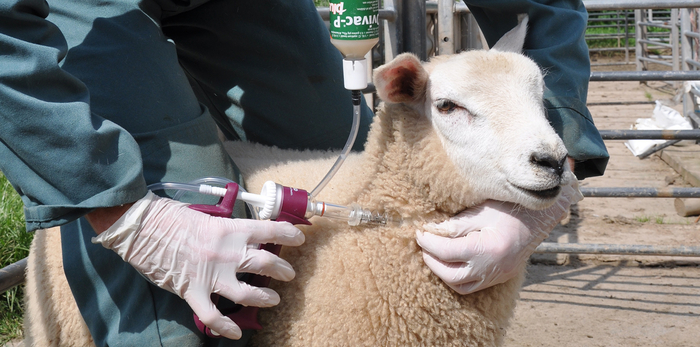Sheep pregnancy scanners across the UK have reported variable results over the winter with some flocks in some areas carrying 20% to 40% fewer lambs than last year. Farmers are therefore being urged to protect every newborn lamb this spring from preventable disease threats.
“It looks like lamb numbers may well be down nationally this year, but if we get a kind spring weather-wise that will certainly help producers maximise the number of lambs reared, which is what counts. However, what sheep producers simply cannot afford to do is lose more lambs to easily preventable diseases,” says sheep vet Phillipa Page from Flock Health Limited.
Ms Page says that farmers facing a lower lamb crop must not react to a depressed productivity challenge by skimping on essential vaccinations that will protect young lambs against diseases that can cause significant mortalities.
“Clostridial diseases and pasteurellosis are both silent killers. Typically, the first sign a farmer will see is a dead lamb; sometimes losses can be catastrophic.”
“In an era when proven and highly cost-effective vaccines are available, no lamb should die from a clostridial disease,” she adds.
Ms Page says that it is impossible to control the multiple and varied stress-related ‘trigger’ factors (e.g. a sudden change in the weather, change in diet or parasite infection) for clostridial disease and pasteurellosis in lambs, so vaccination of these newborns is essential.
“Provided a ewe has been fully vaccinated against these two key disease threats, the colostrum her lambs receive shortly after birth gives them short-lived protection against pasteurellosis and clostridial diseases like pulpy kidney, braxy, blackleg and tetanus. However, this so-called passive immunity only lasts for so long. This means lambs must be vaccinated themselves from three weeks of age.”
Key points:
- Clostridial diseases and pasteurellosis are real threats in unvaccinated lambs.
- Colostrum from vaccinated ewes gives disease protection to lambs provided they receive enough in the first 24 hours, but only lasts for a limited period.
- Vaccination of newborn lambs from three weeks of age will protect them from the main clostridial diseases and pasteurellosis.


